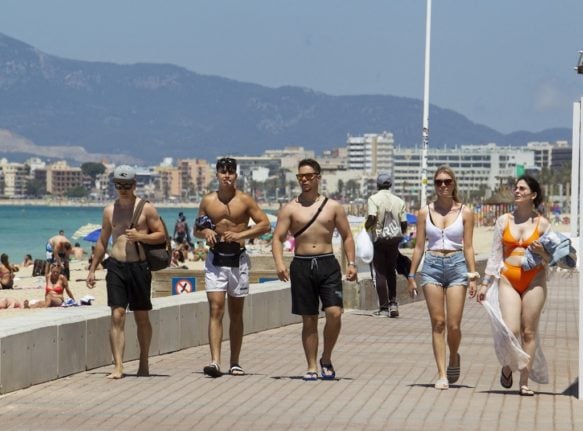Spanish Prime Minister Pedro Sánchez and New Zealand Prime Minister Jacinda Arden announced the expansion of the Working Holiday or Youth Mobility Scheme after their meeting in Madrid held on Tuesday, ahead of the NATO Summit.
The increase means that 2,000 Spaniards and the same number of Kiwis will now be able to benefit from the scheme. This is 10 times more than the 200 visas currently available for each country.
Those aged between 18 and 30 are eligible for the visa, which allows New Zealanders to come to Spain for one year to work for up to six months and travel or study and train for the other six months.
The only caveats are that you can’t accept a permanent job or work for the same employer for more than three months and you must prove that you have sufficient savings to live on. You are also not allowed to apply if you have any dependent children.
The same conditions apply to young Spaniards wanting to work and travel in New Zealand.
The application process for 2022 is currently closed but will open again in 2023, with the increased number of visas available for each country.
“I am delighted to announce a boost to our Working Holiday Scheme with Spain. These schemes create opportunities for young New Zealanders to develop their skills and work experience while travelling and living in Spain,” Ardern said in a statement after the meeting.
“These changes reflect the strength of the relationship between Spain and New Zealand,” she added.
During their meeting, Sánchez and Arden also agreed on the need for a Free Trade Agreement between New Zealand and the EU, creating opportunities for both New Zealand and Spanish businesses, as well as a plan to work together on a new seabird conservation project.
Other subjects discussed by the two leaders included a Global Values Partnership, committing to work closely on areas to strengthen democracy, sustainability, human rights and the rule of law, as well as Russia and the war in Ukraine.
Sánchez said that the partnership will serve to “build more inclusive societies, greener economies and more resilient democracies”.
“Meeting with President Sánchez was a chance to reaffirm our countries’ commitment to working together, and alongside others, to maintain international peace and security, and the rules-based order. It is fitting that our meeting took place in the lead-up to the NATO Summit,” Ardern said.



 Please whitelist us to continue reading.
Please whitelist us to continue reading.
Member comments